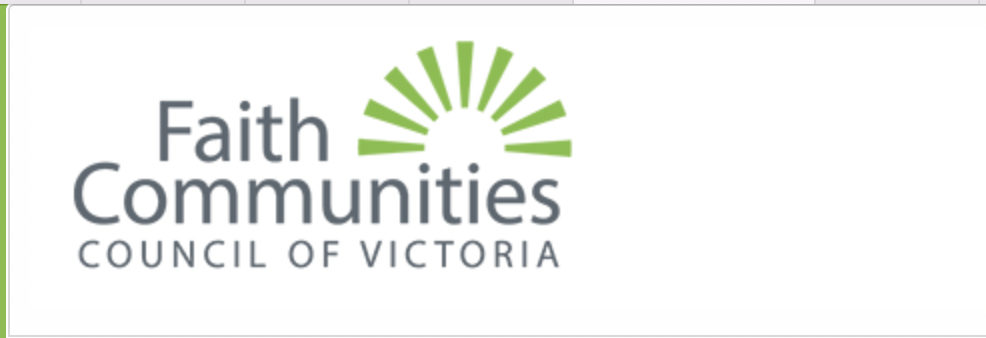One of the groups that VCC connects with is Faith Communities Council of Victoria. In fact, the VCC is the peak body for the Christian churches relating to the FCCV. The FCCV aims to promote a harmonious Victoria.

The new VCC EO Sandy Boyce enjoyed a great introductory (Zoom) conversation with FCCV Multifaith Officer Sandy Kouroupidis and Bhakta Dasa (Chair, FCCV, and representing the Hindu Council of Australia – Victoria).
The FCCV, established in 2010, is Victoria’s umbrella multi-faith body which does really important work, especially engaging with Government, and bringing together faith communities in Victoria. FCCV was created to contribute to the harmony of the Victorian community by promoting positive relations between people of different faiths and greater public knowledge and mutual understanding of the teachings, customs and practices of Victoria’s diverse faith traditions. There are 32 suburban and regional interfaith networks in Victoria.
Sandy K also shared a news story published in The Age (Dec 2021) about the interfaith Ashram where he lives, along with founder Fr John Dupuche, and others. It’s a great story about living the interfaith story in community. Here’s an edited version of the article:

On a bend of the Yarra River, more than an hour’s drive from Melbourne and far from the polarised world of social media, pandemic politics and policy schisms, sits a group comprising what must be one of Australia’s most unusual religious communes.
The rollcall of residents sounds like the beginning of an old joke: a Catholic priest and classical tantra meditation expert, a Buddhist, a Hindu, a Muslim and a Yogi (walk into a bar…). They spend every night debating the meaning of life and some have been doing so for seven years.
Their ashram, near Warburton, 90 minutes east of Melbourne, was set up by Father John Dupuche as a multi-faith community of debate, humour and celebration of difference.
Father John, who has a PhD in Sanskrit, lives with five others who have studied and practised Catholic, Greek and Russian Orthodox traditions, Tibetan and Theravadan Buddhism, Classical Yoga and Vipassana, Western Philosophy, Kashmir Shaivism, and Sunni Islam.
Among them 12 languages are spoken – Greek, French, German, Italian, Russian, Dutch, Latin, Romanian, Urdu, Indonesian, Maltese and English.
The six residents, most who have jobs and all contribute financially, share a house but spend their time doing their individual practices in their room or in meditation huts overlooking the river. Days are spent in solitude or working together around the farm.
Every night, the motley congregation meditate together then read from a different sacred text before they share dinner and debate, each coming from their own spiritual perspective.
In some ways it’s an anti-cult, or perhaps a cult for contrarians, for a requirement of membership is that you hold different views to any of the other residents. This is a haven where disagreement is celebrated.
The curious grouping is the antithesis of so much of what plays out in the modern world, where everyone has an opinion but it seems many have lost the ability to tolerate opposing views.
Father John, who lectures in spirituality, meditation and interfaith relations at the University of Divinity, says: “The diversity enables us to meet at depth … when both eyes look at a pot they don’t see the same – only with both can you perceive depth.”
This hermitude and “table fellowship” perhaps offers lessons to those who find themselves in social media echo chambers where everyone agrees with each other and affirms their membership by condemning, or cancelling, anyone who disagrees.
“When a person is secure in themselves they are not threatened by a different point of view,” Father John says.